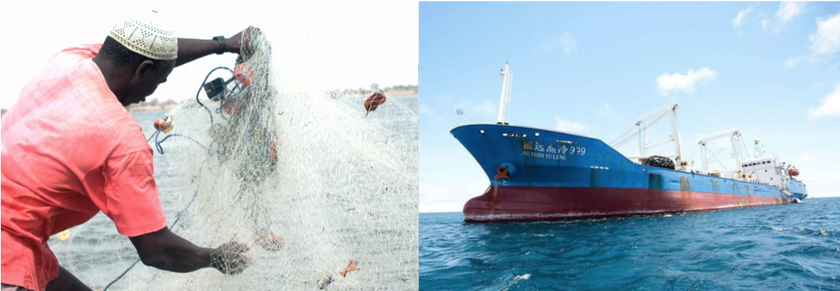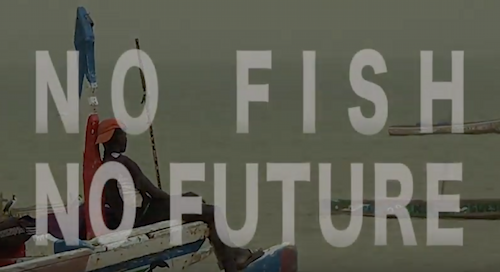
Artisanal or industrial fishing?
Overfishing creates migration
Decades of intensive exploitation of Senegalese fishing grounds by industrial fishing vessels from Europe and Asia have decimated fish stocks to such an extent that local artisanal fishermen are catching less and less - often the meagre proceeds are not even enough to cover fuel costs.
The country's need for foreign currency prompts the government to issue fishing licences to foreign fishing companies - but none of this money reaches the fishermen concerned. So desperate families turn their pirogues into refugee boats in the hope that their sons travelling to Europe will find work there and send money home. A journey that ends in misery or even death for many.
If Senegalese fish stocks were only used by local artisanal fishermen and only processed in the country itself, the domestic economy would be left with far greater added value and 24 times more people would have work than industrial fishing offers. This is why fair-fish demands that fish from developing countries (about half of the global - and unfair - fish trade) only be imported from local catches. Artisanal fisheries would be able to supply humanity with fish if they were not squeezed by destructive industrial fishing. Read more: fish-facts 17: Fish for all—without industry (in German),
